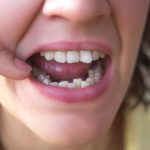Why Brushing Your Teeth Feels Like a Chore: Understanding the Psychology Behind Dental Hygiene Aversion

Dental hygiene is an essential aspect of our daily routine, one that we’ve been taught since childhood. Brushing your teeth and maintaining good oral health is crucial for preventing cavities and gum diseases. However, despite being aware of the importance of dental hygiene, many people find it challenging to maintain a consistent brushing routine. Often, the act of brushing teeth feels like a mundane chore that people tend to avoid or procrastinate, leading to severe dental problems. Understanding the psychology behind dental hygiene aversion is essential to address this issue. The reasons for avoiding dental hygiene can vary from a lack of motivation to anxiety and fear of the dentist. Awareness of these psychological factors can help individuals adopt effective strategies to overcome aversion and develop a healthy oral hygiene routine. In this article, we will delve into the various reasons why brushing your teeth feels like a chore and explore ways to overcome dental hygiene aversion.
Dental hygiene aversion is a common psychological phenomenon that affects a significant number of people worldwide. It is characterized by a strong reluctance or resistance to engage in dental hygiene practices, such as brushing and flossing, despite knowledge of the benefits of such practices. This aversion can be attributed to a variety of factors, such as negative past experiences with dental procedures, anxiety or fear of pain, and feelings of discomfort or disgust associated with the physical sensations of brushing and flossing. Additionally, the repetitive nature of dental hygiene practices can also contribute to feelings of boredom or frustration, further reinforcing the aversion. Understanding the underlying psychological factors behind dental hygiene aversion is essential for developing effective strategies to overcome this aversion and improve oral health outcomes.
Maintaining good dental hygiene is crucial for overall health. Poor oral hygiene can lead to gum diseases, tooth decay, and bad breath. Additionally, recent studies have linked gum disease to other serious health conditions such as heart disease, stroke, and diabetes. Neglecting dental hygiene can also cause pain and discomfort, which can affect daily life activities. Regular brushing, flossing, and dental checkups can prevent these problems and promote good oral and overall health. While brushing teeth may feel like a chore for some, it is an essential task that should not be overlooked. By understanding the psychology behind dental hygiene aversion, individuals can find ways to make dental care more enjoyable and part of their daily routine.
The Science Behind Dental Hygiene Aversion
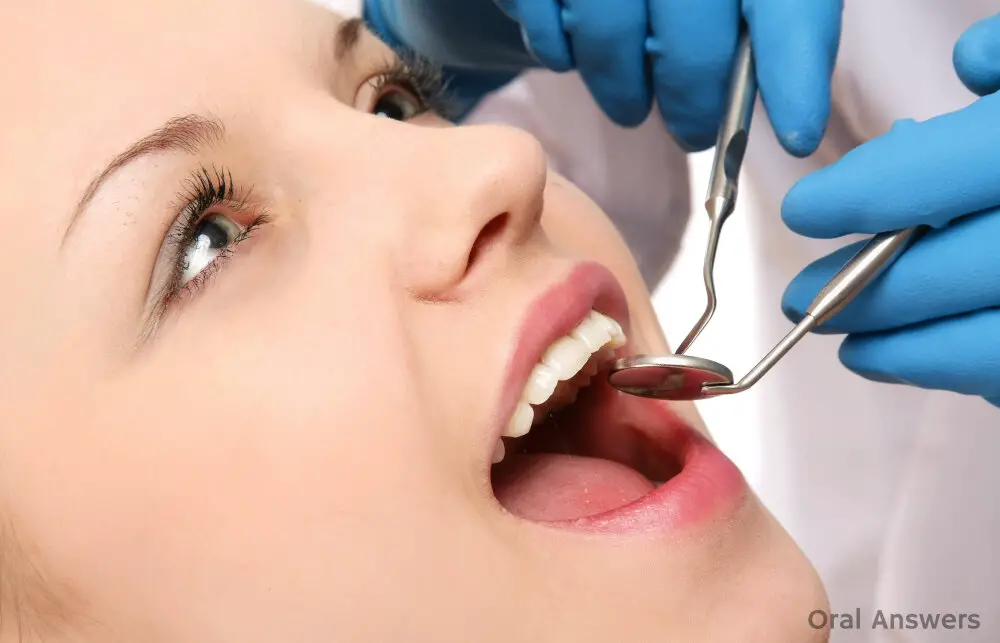
Dental hygiene aversion is a common phenomenon that can affect both children and adults. It is the feeling of dread or reluctance towards engaging in basic oral hygiene habits such as brushing, flossing, or visiting the dentist. The science behind dental hygiene aversion is complex and multifaceted. One of the main factors is the fear of pain or discomfort associated with these habits. Many people may have had negative experiences in the past, such as a painful dental procedure, which can lead to anxiety and avoidance behavior. Another factor that contributes to dental hygiene aversion is the lack of immediate gratification. Unlike other activities that provide instant pleasure or reward, such as eating or watching TV, the benefits of oral hygiene habits are not immediately visible. This can make it difficult for individuals to stay motivated and consistent with their dental care routine. Additionally, the idea of having to engage in these habits every day can feel overwhelming and daunting, leading to avoidance behavior. Understanding the psychology behind dental hygiene aversion can help individuals overcome their reluctance and develop healthy oral hygiene habits that can have long-term benefits for their overall health and well-being.
The brain’s reward system is a complex network of neural pathways that drive us to seek out pleasurable experiences. When we engage in activities that are rewarding, such as eating delicious food or engaging in enjoyable activities, our brains release dopamine, a neurotransmitter that creates feelings of pleasure and reinforces the behavior. This same reward system is also at work when it comes to dental hygiene. While brushing your teeth may not seem like a particularly pleasurable activity, it is important for maintaining good oral health. However, because the immediate rewards of brushing your teeth are not as apparent as other activities, it can be difficult to motivate yourself to do it regularly. Understanding how the brain’s reward system works can help you overcome this aversion to dental hygiene and establish healthy habits that will benefit your overall health and wellbeing.
Negative experiences or associations can have a significant impact on dental hygiene habits. For instance, if someone had a traumatic experience at the dentist as a child, such as a painful filling or extraction, they may develop a fear or anxiety towards dental visits, leading to avoidance of necessary appointments. Similarly, if someone associates brushing their teeth with a negative experience, such as gagging or discomfort, they may avoid it altogether. Furthermore, if someone grew up in a household where dental hygiene was not emphasized or prioritized, they may not see the importance of maintaining good oral health habits. These negative experiences or associations can create a barrier to proper dental hygiene and can lead to serious oral health issues in the long run.
The Role of Habits and Routine
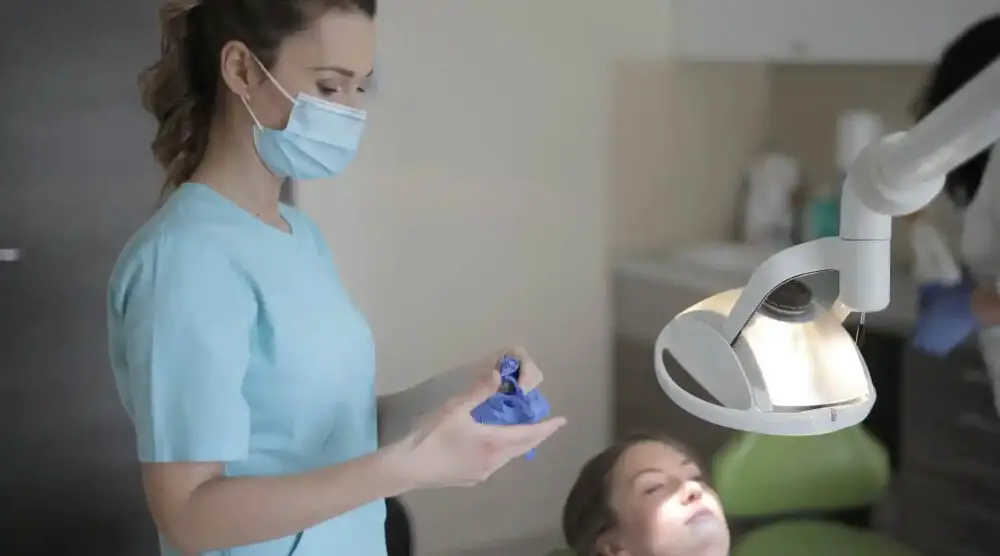
Habits and routines play a critical role in our daily lives, shaping our behavior and influencing our choices. They help us navigate through the day without having to make deliberate decisions about every little task we encounter. Habits are automatic, unconscious responses to specific stimuli that are repeated over time. They can be beneficial or detrimental, depending on the behavior they support. For example, brushing your teeth twice a day is a healthy habit that can prevent tooth decay and gum disease. In contrast, smoking is a destructive habit that can lead to lung cancer and other health problems. The psychology behind habits and routines is complex. Our brains are wired to seek out patterns and repetition, which is why habits form so easily. When we repeat a behavior often enough, it becomes ingrained in our neural pathways, making it easier to perform without conscious effort. However, breaking a habit can be difficult because it requires rewiring those neural pathways and creating new ones. This is why it can be challenging to adopt new healthy habits, such as exercising regularly or eating a balanced diet. Nonetheless, understanding the role of habits and routines can help us develop healthier behaviors and achieve our goals.
Habits and routines play a crucial role in the formation and maintenance of dental hygiene habits. When brushing, flossing, and rinsing become a regular part of a daily routine, they become automatic actions that require less thought and energy. On the other hand, if dental hygiene is not prioritized and neglected, it can become difficult to break out of bad habits and establish a new routine. This aversion towards dental hygiene can be due to a lack of motivation, perceived difficulty or time constraints. Therefore, it is important to establish good dental hygiene habits early on and make them a part of a consistent daily routine to make them feel less like a chore and more like a natural part of daily life.
Establishing a new routine and making dental hygiene a habit requires intentional effort and consistency. One effective strategy is to set a specific time each day for brushing and flossing, such as after breakfast or before bed. Creating a visual reminder, such as placing a sticky note on the bathroom mirror, can also help reinforce the habit. Additionally, finding ways to make the experience more enjoyable, such as listening to music or using a flavored toothpaste, can make the task feel less like a chore. By consistently practicing good dental hygiene habits and finding ways to make it a positive experience, it is possible to overcome aversions and establish a lifelong habit that benefits both oral and overall health.
Fear and Anxiety Related to Dental Hygiene

Fear and anxiety related to dental hygiene is a common occurrence that affects many individuals. Dental anxiety can range from mild anxiety and nervousness to severe panic attacks and avoidance of dental appointments altogether. The fear and anxiety can be triggered by several factors, including past negative experiences, fear of pain, or a general phobia of dental procedures. The fear can be so intense that it leads to poor oral hygiene practices, which in turn can cause dental problems and exacerbate the fear. This creates a vicious cycle that can be challenging to break. Fortunately, there are several ways to manage dental anxiety, including relaxation techniques, sedation, and cognitive-behavioral therapy. Dental anxiety can lead to avoidance of dental appointments, which can have serious consequences for oral health. Poor oral hygiene practices can cause tooth decay, gum disease, bad breath, and other dental problems. These problems, in turn, can cause further anxiety and fear, leading to a never-ending cycle. It is essential to address dental anxiety and take steps to manage it to prevent this cycle from occurring. With the right techniques and support, individuals can overcome their fear and anxiety related to dental hygiene and maintain good oral health.
The fear of visiting the dentist and anxiety related to dental hygiene is a common phenomenon among people of all ages. One of the most common reasons for such fears is the fear of pain during dental procedures. The thought of drills and needles can be overwhelming and lead to intense anxiety. Additionally, people may feel embarrassed about the state of their teeth and fear being judged by the dentist. The cost of dental procedures can also be a source of anxiety for individuals who are not financially stable. The fear of losing control during the procedure and feelings of vulnerability in the dental chair can also contribute to the aversion to dental hygiene. These fears and anxieties can be addressed through proper communication with the dentist and practicing good dental hygiene habits regularly.
Dental anxiety and fear are common among people and can prevent them from receiving necessary dental care. To overcome this fear, it is important to identify the root cause of the anxiety, whether it is a past traumatic experience or fear of pain. Communicating with the dentist about these concerns and asking for sedation or relaxation techniques can also alleviate anxiety. Additionally, practicing relaxation techniques such as deep breathing or meditation before and during the appointment can also help. Seeking support from friends or family members and finding a dentist who specializes in treating anxious patients can also make a difference. With patience, understanding, and proper care, dental anxiety can be overcome, allowing individuals to maintain their dental hygiene without fear or discomfort.
Socioeconomic and Cultural Factors
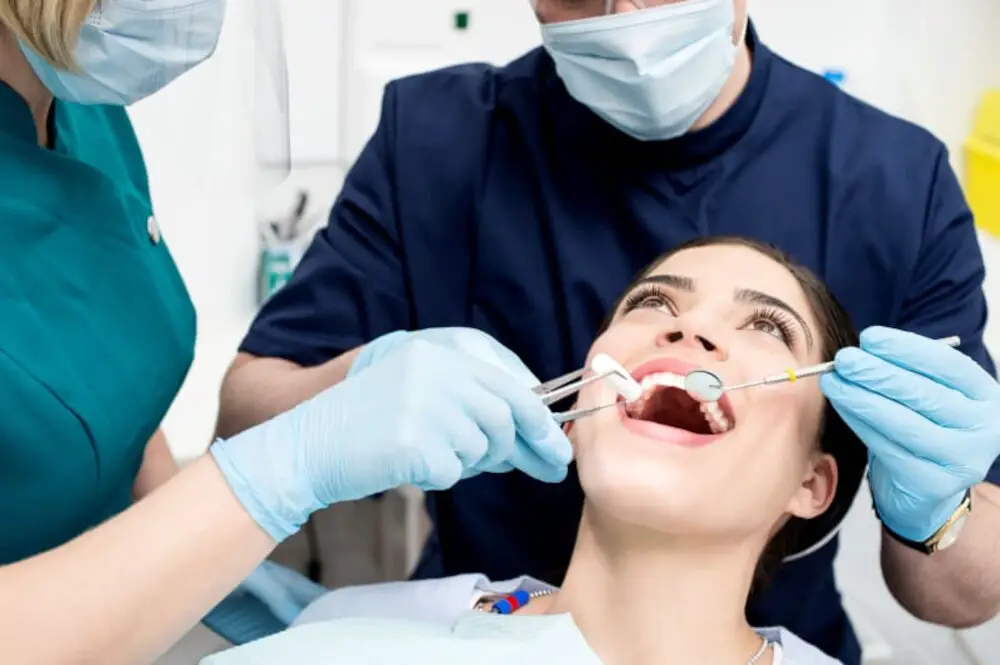
Socioeconomic and cultural factors play a significant role in determining the oral hygiene practices of individuals. People from low-income backgrounds may not have access to adequate dental care, leading to higher rates of dental problems and lower levels of oral hygiene. Additionally, cultural beliefs and norms can influence attitudes towards dental hygiene, with some cultures prioritizing other health practices over dental care. For example, in some cultures, traditional remedies are used to treat dental issues instead of seeking professional dental care. These factors can contribute to aversions towards dental hygiene, as individuals may feel that their efforts are futile or unnecessary. Furthermore, socioeconomic and cultural factors can also impact the availability of oral hygiene resources. For example, individuals living in rural areas may not have access to dental clinics or stores that sell dental products, making it more difficult to maintain good oral hygiene. Additionally, cultural beliefs about the importance of dental care can influence the funding and availability of dental clinics and programs in certain areas. Addressing these barriers to oral hygiene access is important in promoting good dental health and reducing aversion towards dental hygiene practices. Overall, understanding the impact of socioeconomic and cultural factors on oral hygiene practices is crucial in developing effective interventions to promote good dental health.
Socioeconomic and cultural factors can significantly impact dental hygiene habits. Individuals from lower socioeconomic backgrounds may not have access to proper dental care or education on oral health, leading to a lack of understanding of the importance of dental hygiene. Additionally, cultural beliefs and practices can influence dental hygiene habits, as some cultures may prioritize other aspects of health over oral health. For example, in some cultures, it is believed that bad breath is a sign of good health, and therefore, they may not place a high value on brushing their teeth regularly. These factors can lead to poor dental hygiene habits, which can have long-term consequences for overall health and well-being. It is important to address these issues and provide education and resources to promote healthy dental hygiene habits across all socioeconomic and cultural backgrounds.
To address the factors that contribute to dental hygiene aversion and improve dental hygiene habits, several strategies can be implemented. Education and awareness campaigns can help people understand the importance of oral health and the consequences of neglecting it. Making dental hygiene routines more enjoyable and personalized can also be effective, such as using flavored toothpaste or finding a toothbrush with a design that is more appealing to the individual. Additionally, incorporating positive reinforcement, such as rewarding oneself after brushing, can help create a positive association with dental hygiene. Finally, seeking professional help from a dentist or therapist can assist people in overcoming any underlying psychological barriers that may be hindering their ability to maintain good dental hygiene habits. By addressing these factors and implementing these strategies, individuals can improve their dental hygiene habits and maintain optimal oral health.
In the article \Why Brushing Your Teeth Feels Like a Chore Understanding the Psychology Behind Dental Hygiene Aversion,\ the author delves into the reasons why many people struggle with maintaining good dental hygiene habits. One of the main reasons highlighted is the fact that brushing can feel like a chore that requires a lot of effort. Additionally, the article explores the negative emotions that can arise from dental anxiety, which can further discourage people from taking care of their teeth. The author also notes that social and cultural factors can play a role in dental hygiene aversion, as some individuals may feel that dental care is not a priority or may not have access to appropriate resources. Ultimately, the article underscores the importance of understanding the psychological factors that contribute to dental hygiene aversion in order to develop more effective strategies for promoting good oral health habits.
Maintaining good dental hygiene is essential for overall health. Poor oral health can lead to various diseases and infections, such as gum disease, heart disease, and even diabetes. Neglecting dental hygiene also leads to bad breath, tooth decay, and tooth loss, which can significantly impact an individual’s self-esteem and confidence. Brushing, flossing, and regular dental check-ups are crucial in preventing dental problems and maintaining a healthy smile. It is crucial to educate and raise awareness about the importance of dental hygiene to encourage individuals to prioritize their oral health and overall well-being.
Establishing a positive dental hygiene routine may seem like a daunting task, but it is essential for maintaining good oral health. Consistent brushing, flossing, and rinsing can prevent cavities, gum disease, and bad breath. It can also save you from costly dental procedures in the future. Encouraging yourself to establish good dental hygiene habits requires a mindset shift. Instead of viewing it as a chore, try to see it as an act of self-care. Treat yourself to a nice toothbrush and toothpaste to make the experience more enjoyable. Think about the long-term benefits of a healthy smile and the confidence that comes with it. With a positive mindset and consistent effort, establishing a dental hygiene routine can become a natural and effortless part of your daily routine.
Conclusion
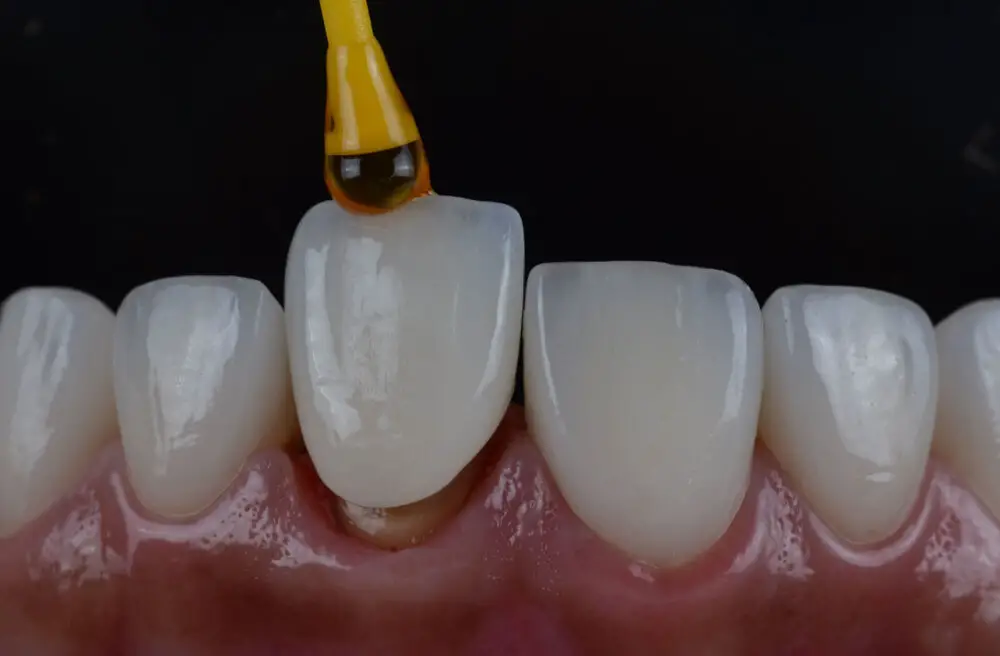
In conclusion, dental hygiene aversion is a common struggle among many individuals. From the fear of pain to the perceived inconvenience and time-consuming nature of brushing, there are several psychological factors that contribute to this aversion. However, by understanding these underlying factors, individuals can take steps to overcome their aversion and prioritize their dental health. This may include seeking professional help, using alternative dental products, or simply reframing one’s mindset and establishing healthy habits. Ultimately, taking care of one’s teeth should not feel like a chore, but rather a necessary and rewarding aspect of overall health and wellbeing.

